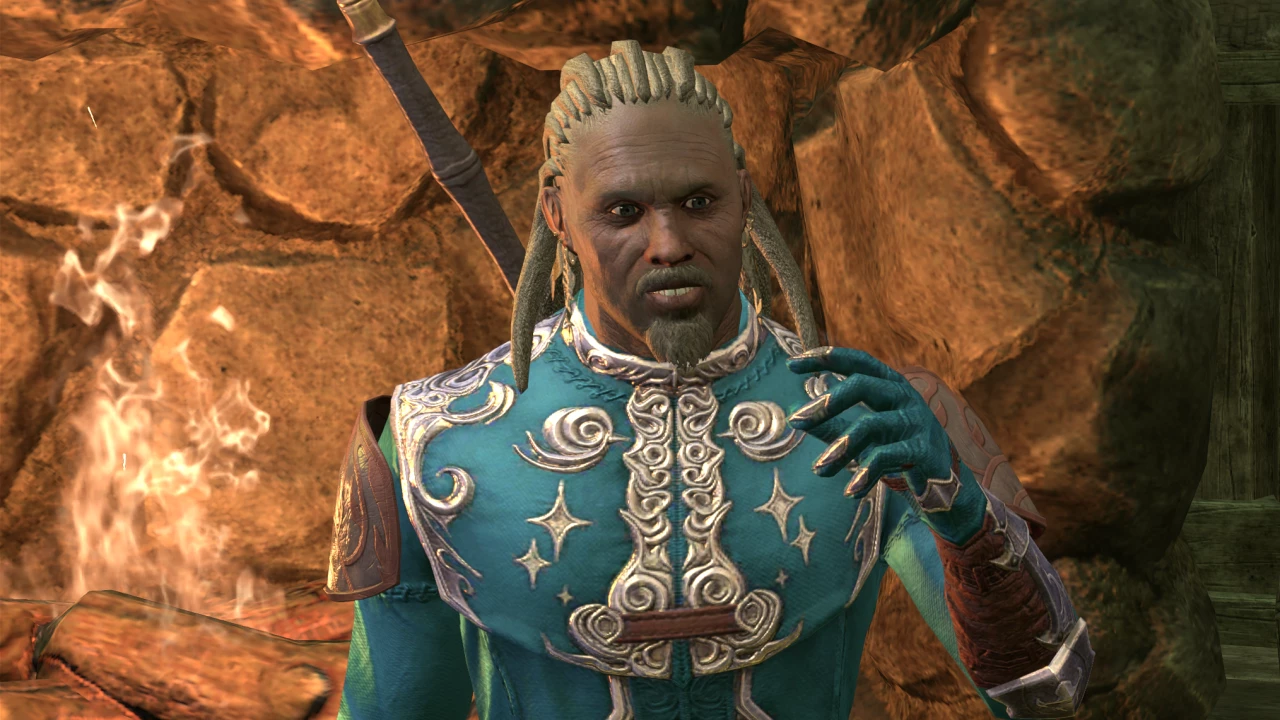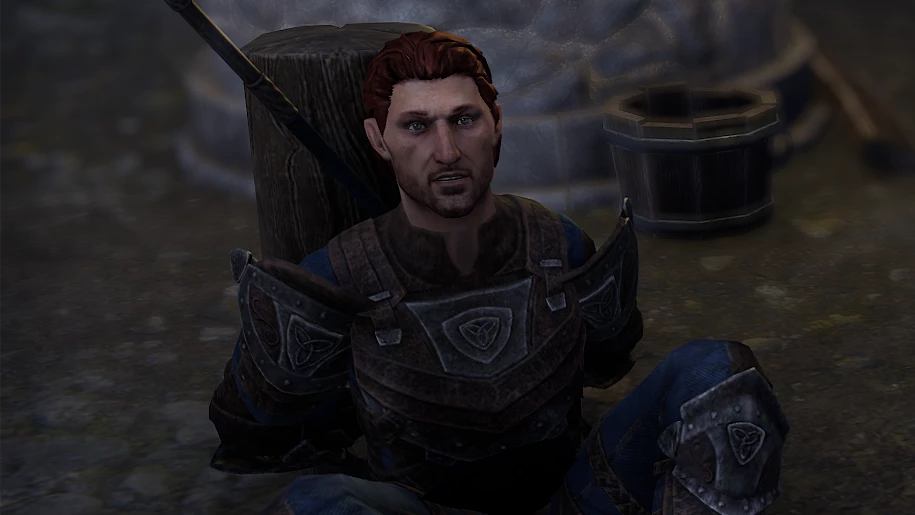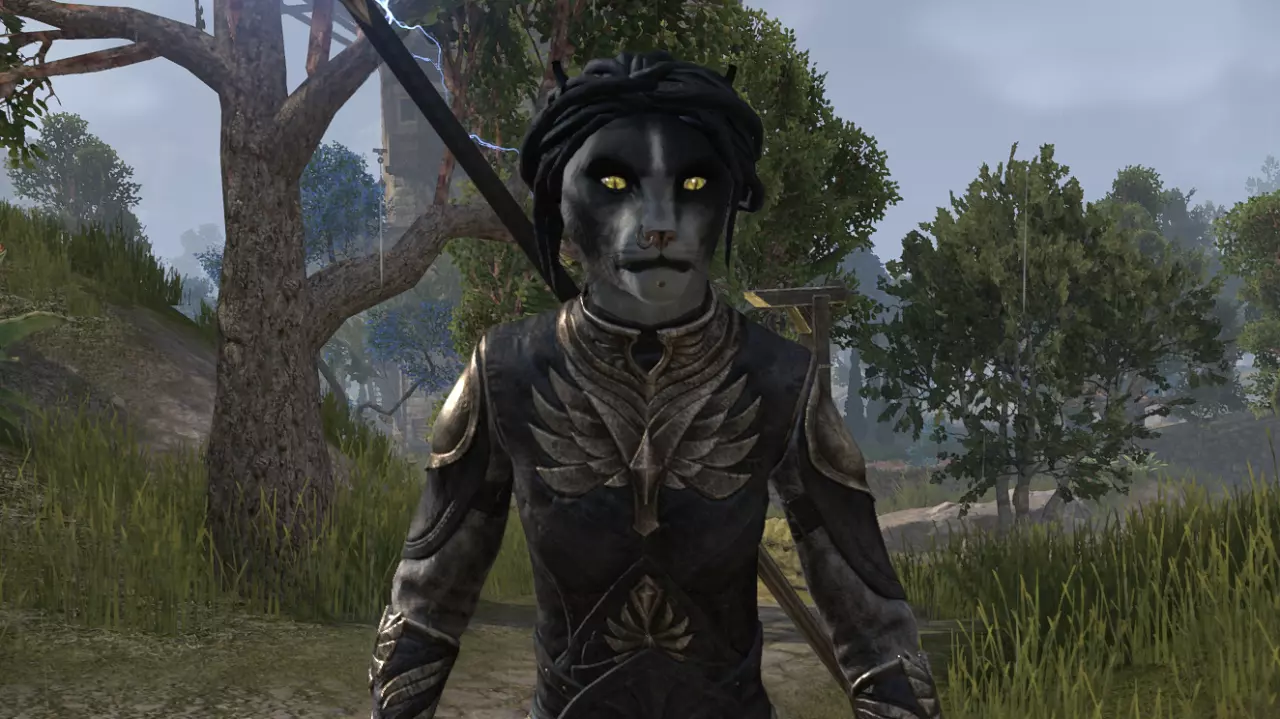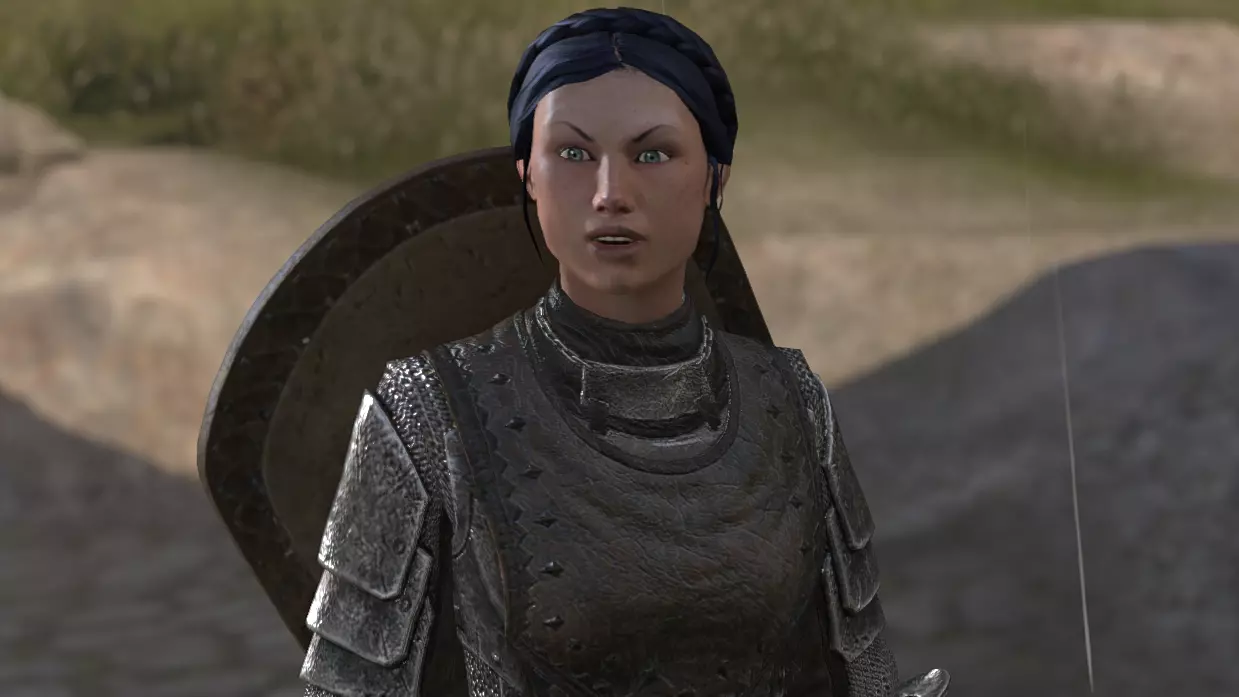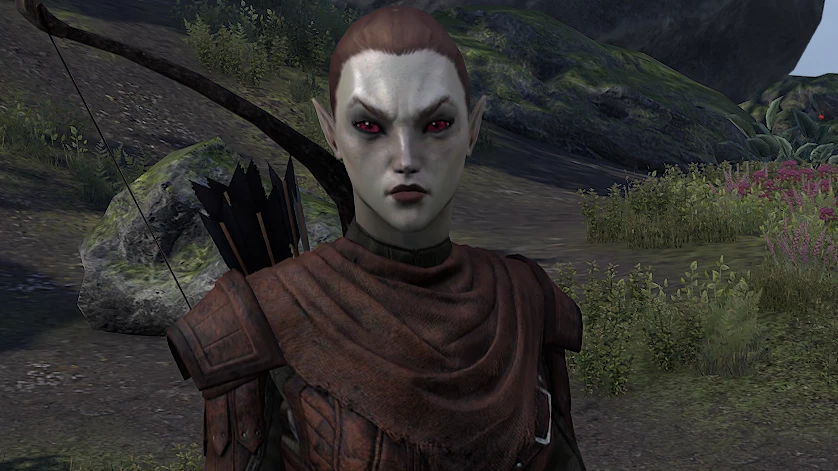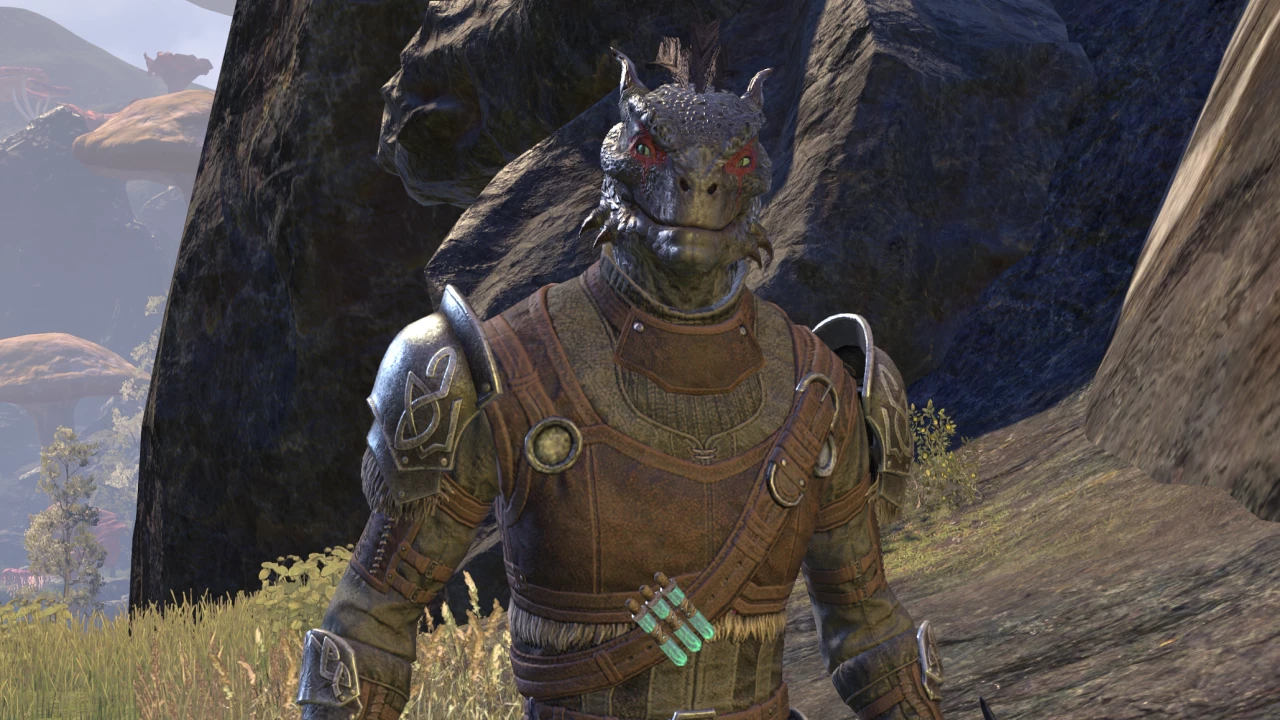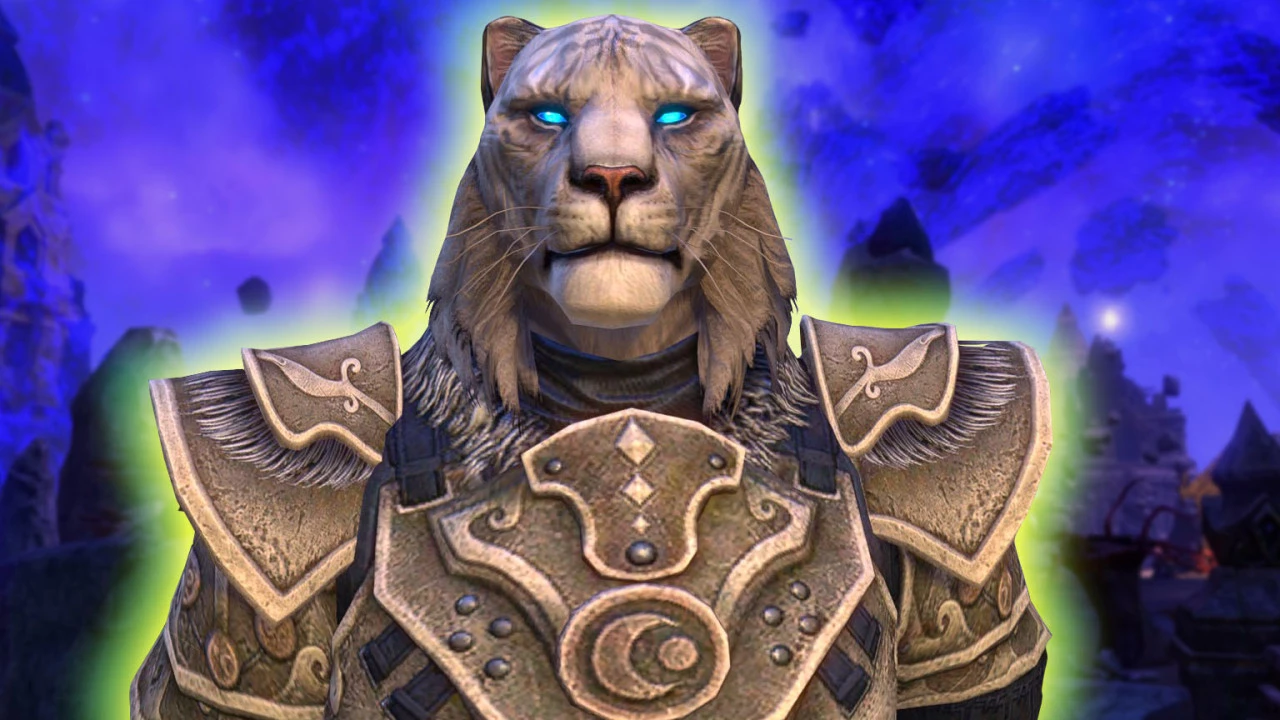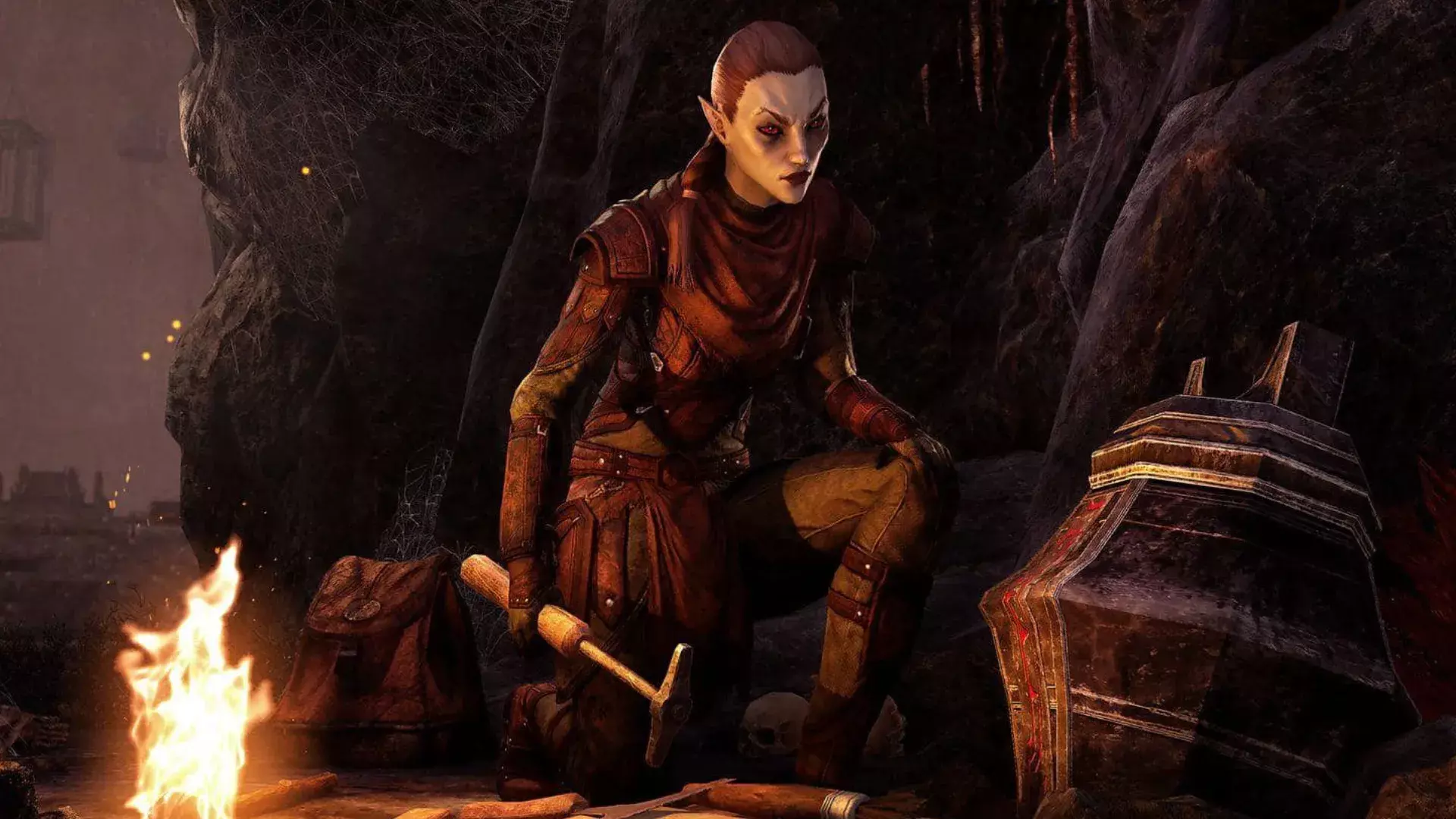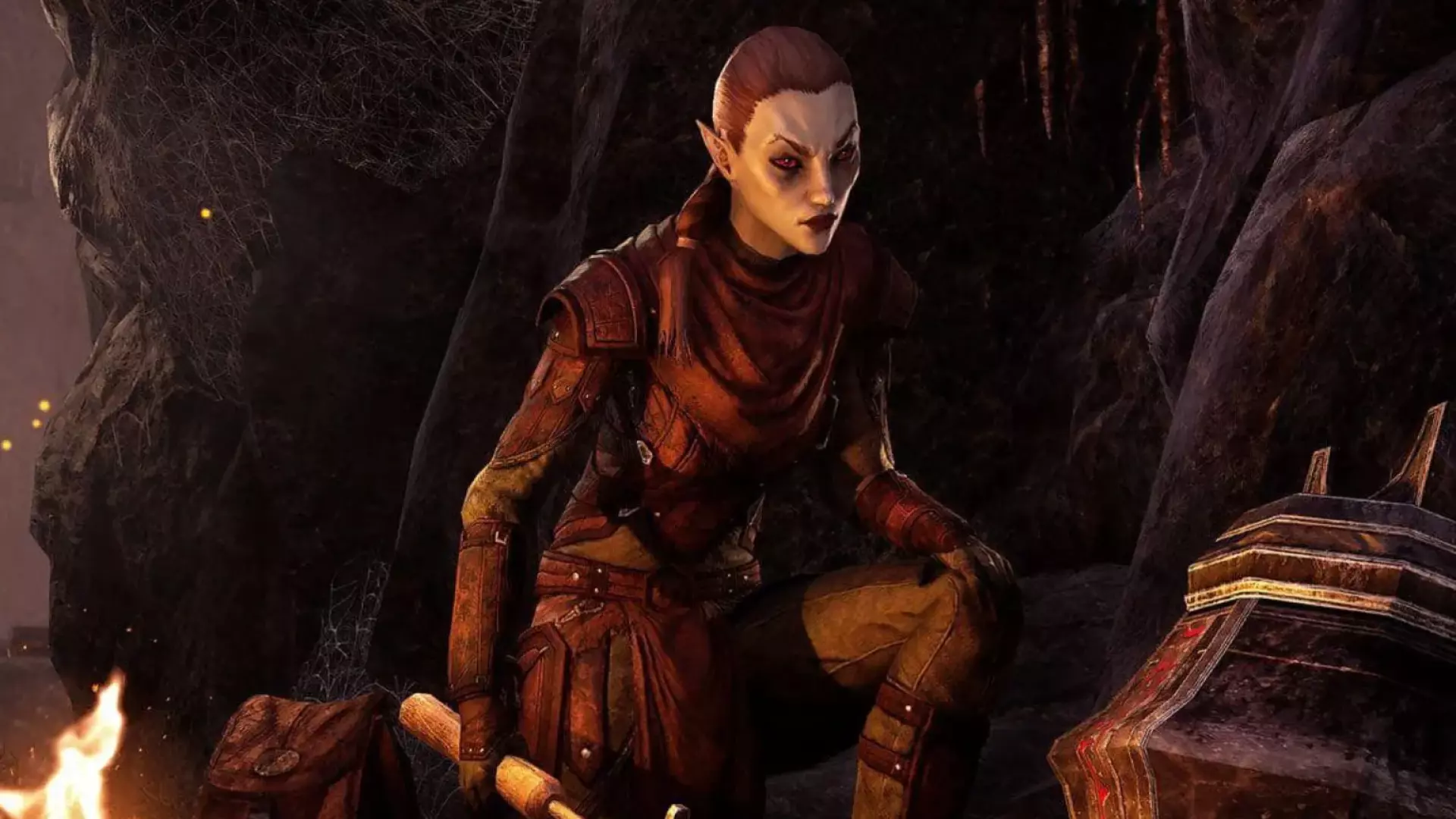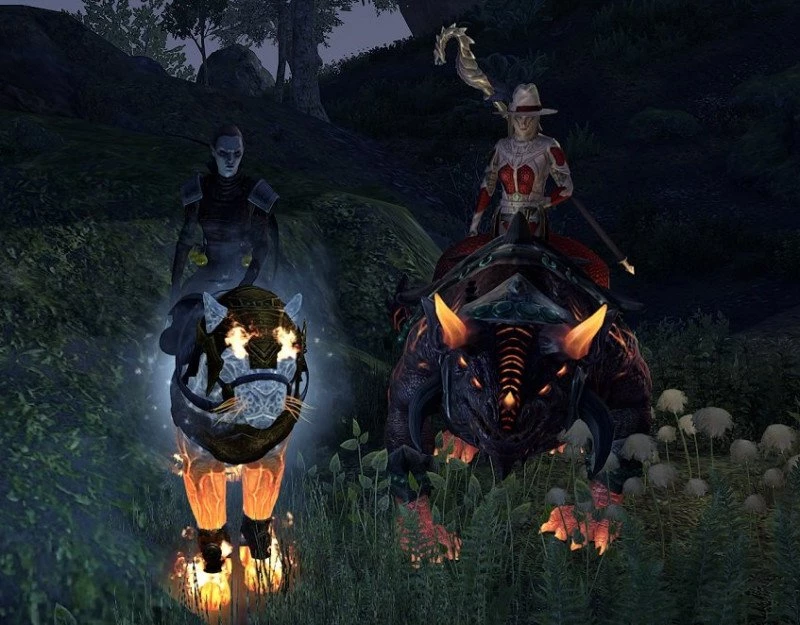Welcome to the ESO Companion overview page. Here you can find all info related to the Companion System.
ESO Companions Overview
Master the ESO Companion System. Unlock powerful allies, manage rapport, and explore builds and guides for every companion in The Elder Scrolls Online.
Table of contents
Introduction
The ESO Companion system, introduced in the Blackwood Chapter and expanded in the High Isle and Necrom chapters, lets Elder Scrolls Online players team up with customizable NPC Companions across most PvE content.
By building rapport through combat, quests, and actions they approve of, you unlock Companion questlines, enhance their combat effectiveness, and deepen your bond.
Customize your Companion’s gear, abilities, mounts, costumes, and outfits to suit your playstyle as you explore Tamriel together.
Available Companions
Companion Summary
- Gender
- Male
- Class
-
 Arcanist
Arcanist
- Race
- Redguard
- Keepsake
-
 Abyssal Tea Set
Abyssal Tea Set
Increases Max Health by 3% and decreases ability cooldowns by 3%.
When searching containers, bestows a chance to discover research portfolios. Portfolios can contain crafting recipes, treasure maps, research notes, survey reports, and other documents of value.
- Gender
- Male
- Class
-
 Dragonknight
Dragonknight
- Race
- Imperial
- Keepsake
-
 Bastian's Julianos Medallion
Bastian's Julianos Medallion
Increases Max Health by 3% and increases damage done by 3%.
Potions looted from monsters have a 30% chance to be improved by Bastian's Insight.
- Gender
- Female
- Class
-
 Sorcerer
Sorcerer
- Race
- Khajiit
- Keepsake
-
 Luxury Thieves Tools
Luxury Thieves Tools
Increases Critical Chance by 3% and damage done by 3%.
When pickpocketing, bestows a chance to acquire hidden wallets your mark hoped to keep secure. Hidden wallets may contain additional gold.
- Gender
- Female
- Class
-
 Templar
Templar
- Race
- Breton
- Keepsake
-
 Stendarr's Sweets Vault
Stendarr's Sweets Vault
Decreases ability cooldowns by 3% and damage taken by 3%.
Bestows a chance, after defeating a world boss, to recover the pack of a slain knight. Packs may contain additional loot.
- Gender
- Female
- Class
-
 Nightblade
Nightblade
- Race
- Dark Elf
- Keepsake
-
 Ancient Anticipations Idol
Ancient Anticipations Idol
Increases damage done by 3% and healing done by 3%.
Treasure chests found through treasure maps and in the Overland have a 30% chance to provide additional loot from hidden compartments.
- Gender
- Male
- Class
-
 Warden
Warden
- Race
- Argonian
- Keepsake
-
 Sharp's Handmade Fishing Lure
Sharp's Handmade Fishing Lure
Increases Physical and Spell Resistance by 3% and healing done by 3%.
Fish bite at an increased rate and have a higher chance of being trophy fish. Note that this does not reduce your chance to hook special items.
- Gender
- Non-binary
- Class
-
 Dragonknight
Dragonknight
- Race
- High Elf
- Keepsake
-
 Garland Ring Humming Pick
Garland Ring Humming Pick
Decreases damage taken by 3% and increases damage done by 3%.
When lockpicking, bestows an increased time to pick a lock, an increased chance to force a lock, and a reduced chance to break a lockpick.
- Gender
- Male
- Class
-
 Necromancer
Necromancer
- Race
- Khajiit
- Keepsake
-
 Ja'kh's Bell of Bounty
Ja'kh's Bell of Bounty
Decreases ability cooldowns by 3% and increases Health by 3%.
Ja'kh uses his keen eyes to point out heavy sacks.
Leveling - XP Requirements
Combat Level / Class
| Lvl | XP |
|---|---|
| 1 | 0 |
| 2 | 500 |
| 3 | 1,500 |
| 4 | 3,500 |
| 5 | 7,000 |
| 6 | 12,500 |
| 7 | 19,500 |
| 8 | 27,500 |
| 9 | 36,100 |
| 10 | 45,200 |
| 11 | 54,600 |
| 12 | 64,300 |
| 13 | 74,300 |
| 14 | 84,500 |
| 15 | 94,900 |
| 16 | 105,400 |
| 17 | 116,000 |
| 18 | 126,700 |
| 19 | 137,500 |
| 20 | 148,500 |
Weapon / Armor
| Lvl | XP |
|---|---|
| 1 | 0 |
| 2 | 250 |
| 3 | 750 |
| 4 | 1,750 |
| 5 | 3,500 |
| 6 | 6,250 |
| 7 | 9,750 |
| 8 | 13,750 |
| 9 | 18,050 |
| 10 | 22,600 |
| 11 | 27,300 |
| 12 | 32,150 |
| 13 | 37,150 |
| 14 | 42,250 |
| 15 | 47,450 |
| 16 | 52,700 |
| 17 | 58,000 |
| 18 | 63,350 |
| 19 | 68,750 |
| 20 | 74,250 |
Rapport
Every Companion has unique likes and dislikes you can discover through conversation and in-world actions. While a Companion is active, your deeds can raise or lower their opinion of you. Rapport changes show up instantly in the loot stream, though most actions have cooldowns. Rapport is tied to each character, so you’ll build it separately on each one. Certain Companion quests remain locked until you hit specific rapport thresholds.
As rapport shifts, you’ll cross thresholds that alter your Companion’s dialogue and unlock new bonuses.
Type this command in chat to get your active companion’s exact rapport number:
/script d(GetActiveCompanionRapport())
| Min | Max | Status | Effect |
|---|---|---|---|
| -5000 | -4000 | Disdainful | Companion feels pure contempt. |
| -3999 | -2500 | Irritated | Companion strongly dislikes you. |
| -2499 | 749 | Wary | Companion tolerates you. |
| 750 | 999 | Cordial | Friendly acquaintance; Companion counts you as a trusted ally. |
| 1000 | 1999 | Friendly | Companion respects you as an ally, and you gain a 5% Companion XP bonus. |
| 2000 | 2999 | Close | Companion greatly admires you, and you gain a 10% Companion XP bonus. |
| 3000 | 3999 | Allied | Companion holds you in high esteem, and you gain a 15% Companion XP bonus. |
| 4000 | 5500 | Companion | Companion regards you as their dearest friend, and you gain a 20% Companion XP bonus. |
When you first meet, a Companion starts at Cordinal (750 rapport). Reaching Friendly unlocks personal dialogue and shared quests; dropping below Wary may send them away temporarily. Each upward tier adds another 5% XP Bonus, showing how much they value you.
View Companion Rapport Tables
Companions Skills
Companions possess multiple skill lines—each granting unique abilities. Most companion class skill lines have three active skills unlocked by leveling that line. Unlike player characters, companion abilities unlock automatically without spending skill points and do not rank up or morph over time.
- Unlock automatically without spending skill points
- Do not rank up or morph over time
Class Skill Lines
Weapon Skill Lines
Weapon lines level through combat experience when the companion uses that weapon type.
Armor Skill Lines
Armor lines level by wearing five or more pieces of the same armor weight—only one armor line can advance at a time.
Guild Skill Lines
Level by completing solo daily quests (100 XP each, 100 XP per level, max level 10). Not available to companions: Thieves Guild, Dark Brotherhood.
Racial Skill Lines
Passive bonuses apply automatically based on the companion’s race. These lines do not include active skills.
Progression & Leveling
With the exception of quests and rapport, which collectively represent the relationship between each character and the Companion, all Companion progress is account-wide.
Companions are level 1 when unlocked, with a limited set of ability bar slots and a maximum potential level of 20. Companions level up via a percentage (15% + Rapport Bonus), rounded up, of non-Enlightenment experience gained with your character directly from combat.
Experience increasing effects such as holiday bonuses and consumable boosters applied to your character will provide an indirect benefit to the Companion as well.
As Companions gain combat levels, their health and overall power (which affects weapon and spell damage) increases automatically, additional ability bar slots unlock, and more class abilities become available. This includes an Ultimate slot and ability, which unlock at combat level 20.
Guides


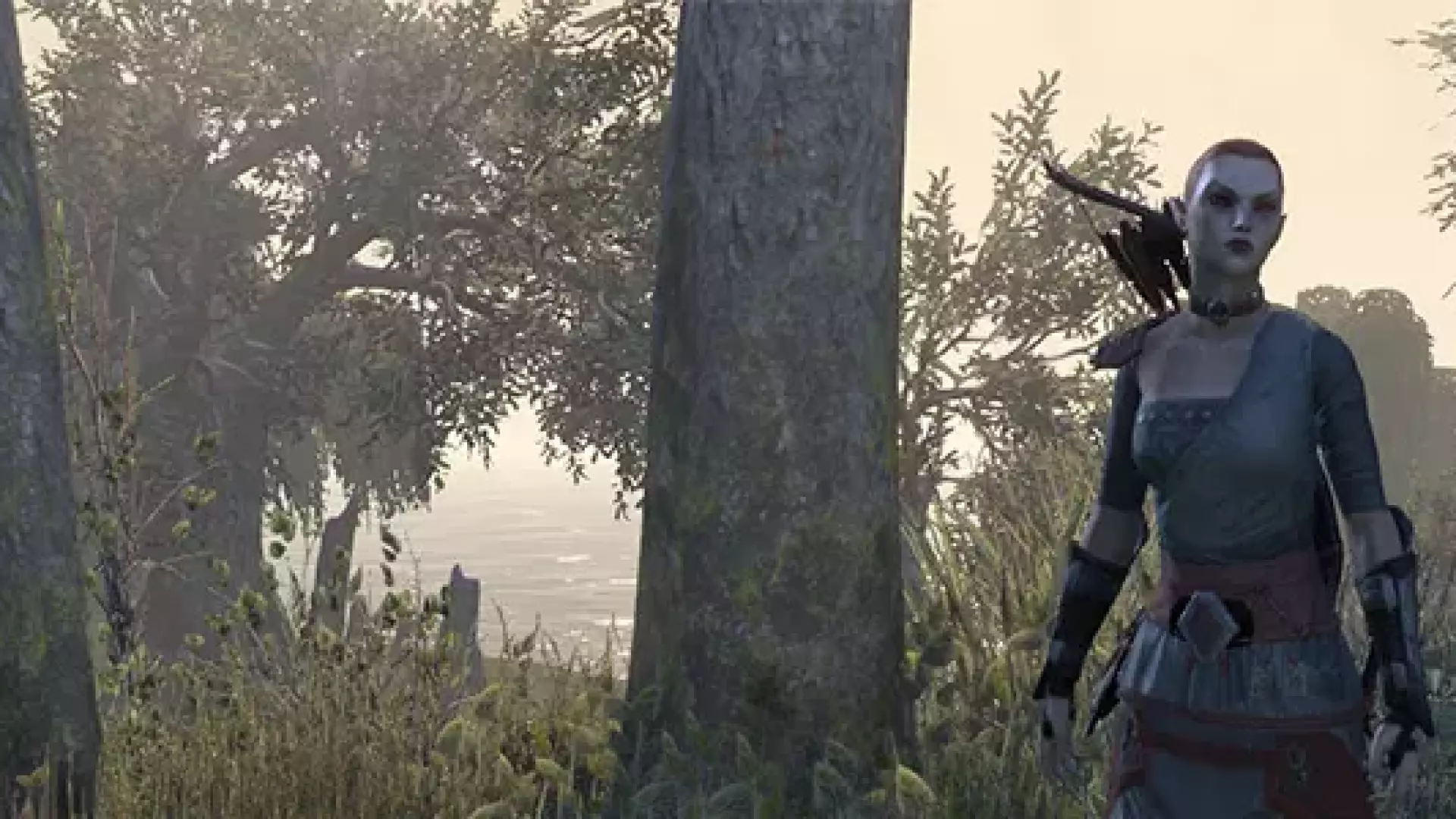
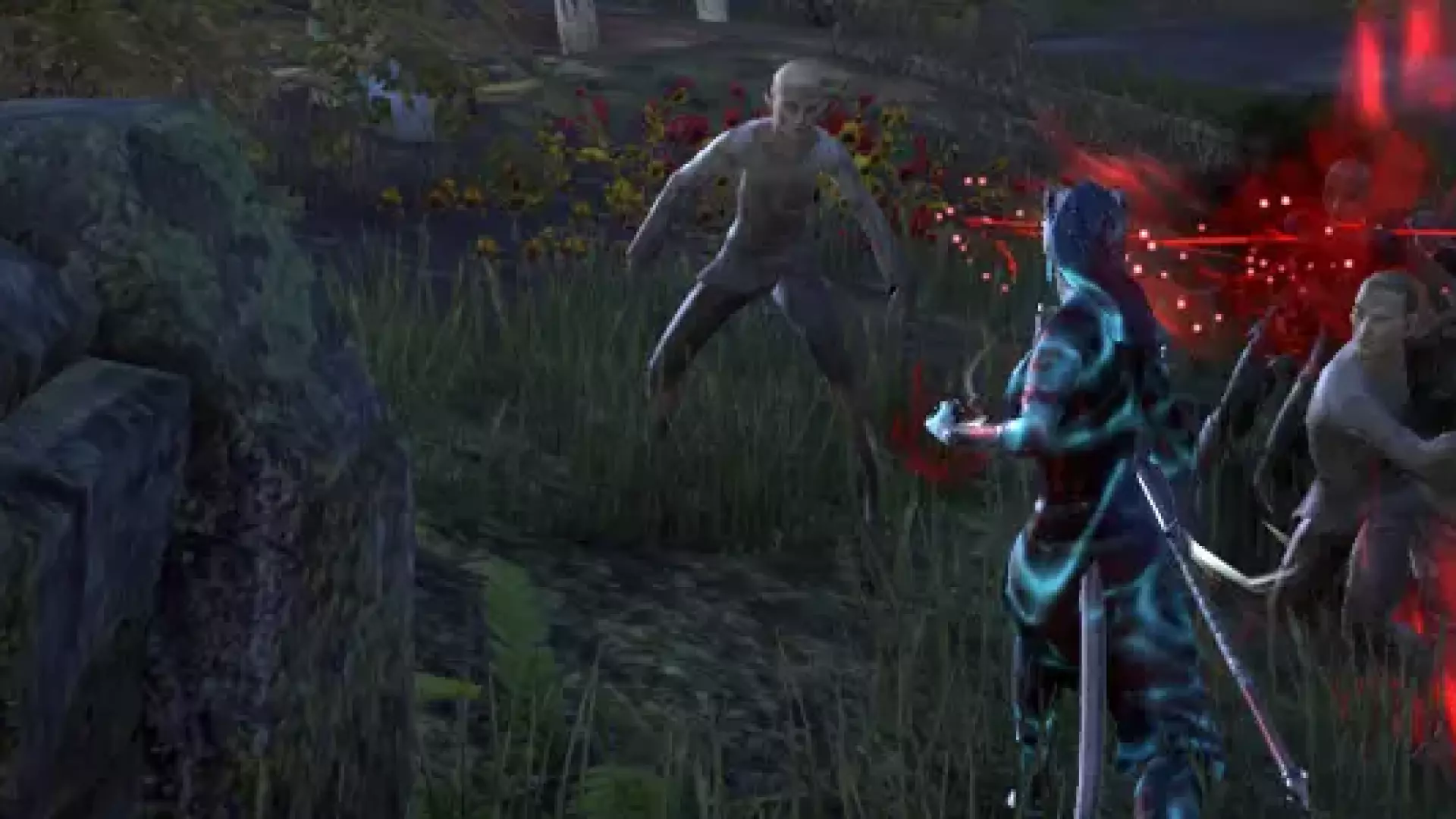
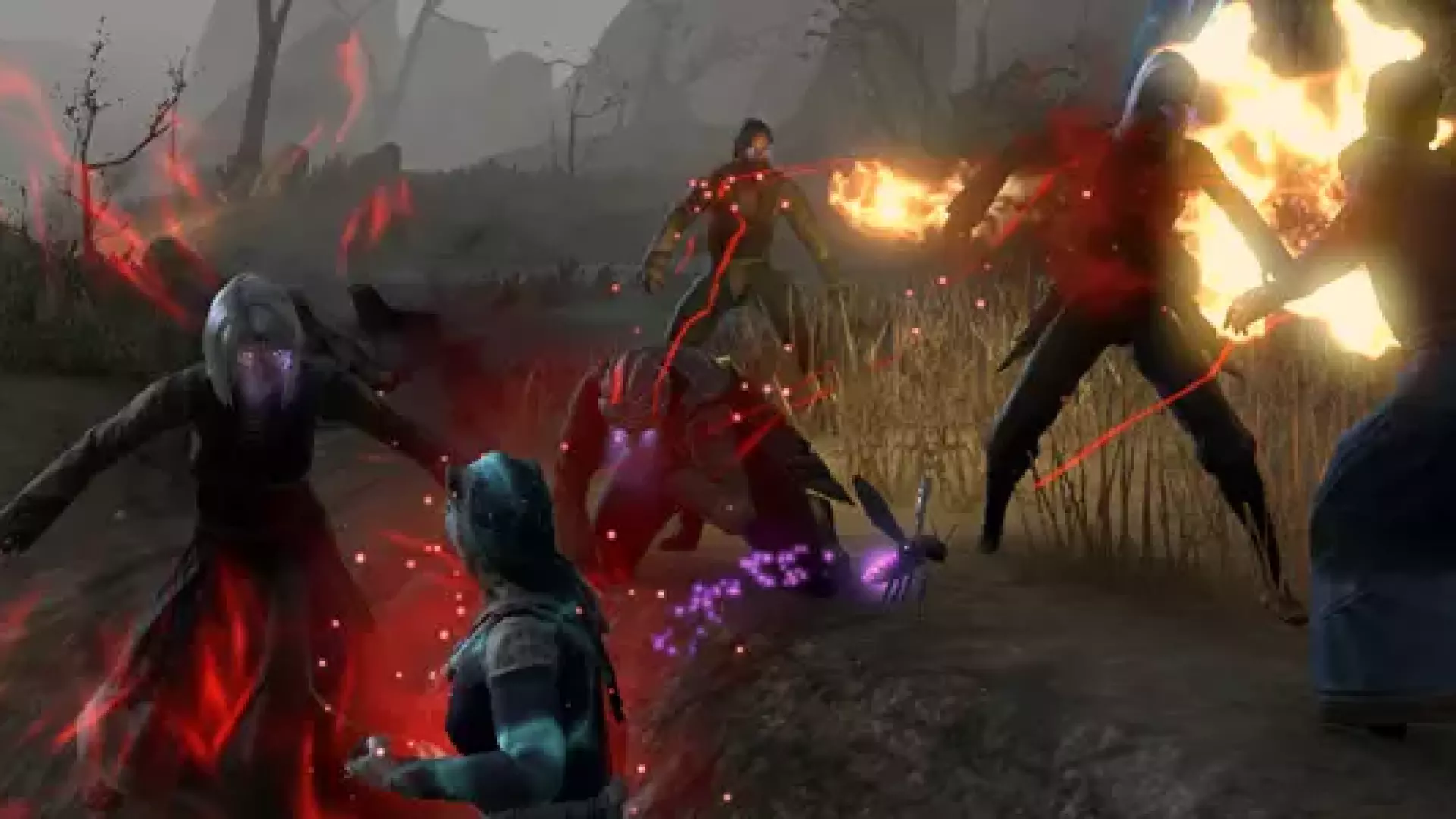

The ESO Companions system allows you to have non-player characters called companions. Companions can aid a player in their adventures, follow them into dungeons and perform various roles as they assist in combat.
The more time a player spends with the companions and gets to know them better, their effectiveness will increase and their standing towards the player will either increase or decrease. The more they like the player, the more willingly they will become to share personal information and award the player with personal quests. They can also wear specific gear and can be customized in many ways, including their abilities, mounts, costumes, outfits and more.
They also come with specific perks. The moment you call them, each companion will give you a benefit to your surroundings or items. The more you get to know your companion, they will decide to give you a token of their friendship, which means that you will be able to use their perk even if they are not active.
Bastian, Mirri, Isobel and Ember ESO Companions
The first ESO Companions that were added can be accessed by owning the Blackwood chapter and they are called Bastian Hallix and Mirri Elendis. With the High Isle chapter two more companions were added, they are called Ember the Khajiit and Isobel Veloise.
You can find Bastian Hallix south of Deepscorn Hollow. Those seeking Mirri Elendis, will find her north of Doomvault Vulpinaz. Completing their initial quests will allow you to call on them for assistance by using their Collectible from the "Collectibles" menu. You may also call companions via hotkey.
The Companion Isobel Veloise can be found at Castle Navire on the southwest coast of High Isle. Ember can be found in at Draioch just north of Gonfalon Bay, the main city of High Isle
Making friends or foes - Companions Rapport System
The friendship status among the player and a companion in ESO is called "Rapport". It measures how well you and your companion get along.
Each companion has their own set of ideals and preferences. They comment on different actions you take and things you encounter in the world based on these preferences. Figuring out what your companion likes and acting accordingly increases their rapport with you. Conversely, behaving in ways your companion dislikes or saying things they disagree with decreases their rapport.
The biggest recurring boost to a companion's rapport occurs when the companion is active and you complete specific daily quests that are meaningful to them. For example, completing the Fighters Guild daily with Mirri, or the Mages Guild daily with Bastian, will add a significant amount of rapport each day.
Rapport List
Companion behavior changes depending on their rapport with you. A negative rapport limits what a companion is capable of. They could even leave you for a time if rapport gets bad enough! Positive rapport, on the other hand, offers rewards and bonuses, such as additional quests (including quests that can unlock a companion as a houseguest).
Fine feathers make fine birds - Companions Customization
Each ESO Companions can be customized in multiple ways. They can wear any of your collected costumes, although you cannot hide their faces. Companions come with their own mount, but can also use any of the mounts that you've unlocked. When you summon your own mount, they summon theirs too and ride along with you.
To customize your companion, simply interact with them to open dialogue. Select the Companion Menu option and choose the Collectibles tab in the top right. You can change costumes and mounts on this tab. If you want to edit a companion's outfit, you must use an outfit station first before applying the outfit through the Companion Menu.
More info on ESO Companions customization here:
Each companion also provides a unique non-combat benefit while they are active. Truly bonding with your companion makes that benefit permanent.
The sword is the axis of the world
ESO Companions come equipped with their own basic gear. They have their own abilities and limited skill line progression, based on their background. You can configure and customize their active abilities through the Companion Menu. Companions can have multiple combat abilities pre-slotted into their active bar. They can also have a racial passive ability and a non-combat bonus.
A companion gains experience by fighting and killing mobs. The experience awarded to your companion is based on how much you receive when an enemy dies. (Your companion's experience does not reduce the amount of experience you receive.) Leveling up a companion makes them more powerful. It also unlocks additional ability slots and new abilities, including an Ultimate ability.
A Companion's maximum level is 20. A companion's progression and combat customization (including skill lines, active ability bar, and equipment) is preserved across all characters on the same account.
Companions Combat Customization in ESO
Customizing your ESO Companions for combat is very similar to player combat customization. Leveling up your companion unlocks class skills. Weapon and armor skill lines are based on experience gained while the appropriate items are equipped, as well as participating in repeatable quests for guilds. Companion skills do not morph or increase in rank individually, and do not require skill points to unlock.
To customize your companion, summon them and select the Companion Menu. Choose the second option, Skills. Slotting skills into the companion's action bar instructs them to use the given abilities. The order in which abilities are placed in the action bar determines the priority your companion gives them (if there is a valid target). Companion abilities use cooldowns rather than resource pools.
More on Companion skills here:
You can give your companion the role of tank, healer, or damage dealer by setting the appropriate abilities in the companion's action bar. You can also mix abilities to give your companion a hybrid role.
Companions Gear
Companion gear is its own category. ESO Companions have their own weapon and armor equivalents. Players cannot equip companion gear, and vice versa. Companion gear has item quality, stats and companion-specific traits, but it cannot be upgraded or enchanted. There are no item levels or item sets for companion gear.
You can find companion gear when you are participating in content while your companion is active.
More on Companion gear here:
Companions and Housing
If you grow close with your companion and assist them in their time of need, they may become comfortable visiting your home and unlock as a houseguest.
A houseguest collectible of the companion functions like other houseguests. They count as a special collectible. You can place your companion houseguest or assign them to paths in your house.
Availability of Companions
Your Companion's level and combat selections carry across all characters. Quest completion, rapport, costume, and mount overrides are determined separately for each player character.
ESO Companions are available to participate in the majority of overworld content. They can assist in questing, defeating group bosses, completing dungeons, exploring delves, and more. However, companions cannot participate in PvP. You cannot call your companion in Cyrodiil, Imperial City, or battlegrounds. You also cannot call your companion inside houses.
Players can only have one companion active at a time. Companions count towards player limits in grouped content, and are not available in arenas.
Controlling Companions
These are the default controls for PC.You can issue commands to your Companion with the keybind Y. If you wish to bind it to a different key, navigate to the "Keybindings" section of the "Controls" menu. Note that these commands work for Combat Pets as well.
When you issue a heavy attack (pressing and holding Left Mousebutton), a Companion will switch to your current target.Using Y and Left Mousebutton will command a Companion to attack a target.
Using Y and Right Mousebutton will command a Companion to stop attacking and come back to you.
You can configure your Companion's use of their Ultimate in the "Gameplay - Combat" section of the "Settings" menu.
Unlocking Companion Quests
The personal quests for the companions are unlocked when you reach 1500, 2750 and 4000 rapport with them. Completing their second quest will also unlock their special loot passive while you have them active.
 Deutsch
Deutsch
 Français
Français
 Русский
Русский
 Español
Español
















































































































































































































































































































